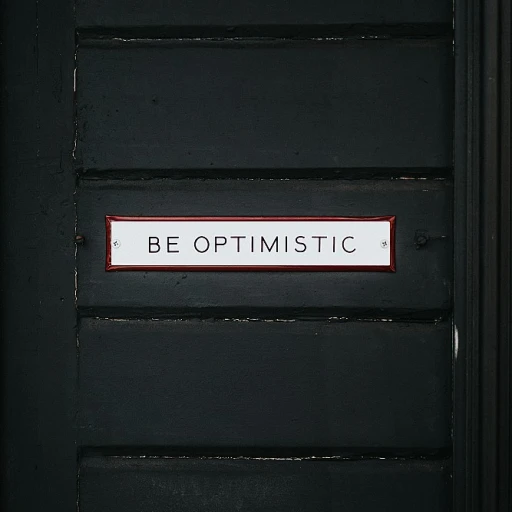The Role of Human Resources in Conflict Resolution
The Crucial Role of Human Resources in Dispute Resolution
Within any organization, workplace conflict is an inevitable part of team dynamics. Resolving these disputes effectively is critical to maintaining a healthy work environment and ensuring that employees feel heard and valued. In this regard, the human resources department plays a pivotal role in conflict resolution. HR professionals are often the first point of contact for employees experiencing conflict. Their responsibilities are not limited to just addressing workplace conflicts but extend to implementing resolution strategies that reinforce a positive organizational culture. By fostering open communication and offering resolution training, HR can help managers and team members develop essential skills for effective conflict management. To effectively resolve conflict, HR employs a variety of methods, including mediation and providing a neutral ground for dispute resolution. HR practitioners often use their skills in communication and problem-solving to navigate these complex situations. Ensuring all parties feel respected and understood is crucial for effective resolution strategies. Human resources also contribute to workplace conflict management by offering tailored training programs aimed at equipping employees with the skills needed to handle disputes independently. This empowers team members to engage in open communication and collaborative problem-solving, which ultimately enhances the overall work environment. Furthermore, HR departments must continually align their efforts with the organization's goals and culture. This alignment helps in crafting conflict management strategies that are not only effective but culturally sound. For more insights into how language and phrases can impact HR dynamics, consider reviewing the phrases that intimidate human resources.Addressing Employee Needs: Beyond Basic Requirements
Enhancing Workplace Culture and Employee Relations
In order to address employee needs effectively, businesses must dive deeper than just meeting basic requirements. Organizations must focus on enhancing relationships and fostering a workplace environment that champions open communication and collaboration. Such an approach lays the foundation for smoother conflict resolution processes and sets a positive tone for employee relations. The need to create an environment where employees feel respected and valued cannot be overstated. Establishing a robust work culture is pivotal in enabling teams to harness diverse skills and perspectives, ultimately driving the organization forward. Employees who feel included and understood contribute more effectively, helping to reduce workplace conflicts. Employers can help in resolving conflicts by integrating comprehensive management training programs. These initiatives equip team members, managers, and other parties involved in conflict resolution with the necessary dispute resolution strategies and problem-solving skills. Training programs emphasize resolution skills such as effective communication, negotiation, and listening—all crucial components in navigating workplace conflicts. Moreover, as discussed in recent HR analytics trends, understanding employee satisfaction through analytics can provide significant insights into team dynamics. Such data helps organizations to tailor their approach, addressing specific needs and identifying areas for improvement. By utilizing workplace conflict analysis tools, HR can pinpoint potential stressors or cultural issues within the team, ensuring swift and effective conflict management. Ultimately, addressing employee needs beyond basic requirements involves fostering a culture rooted in mutual respect and understanding. By prioritizing open communication, offering targeted management training, and leveraging analytical insights, organizations can maintain a harmonious work environment while ensuring every employee feels their needs are being met. For more insights, consider reading about ensuring fairness in HR analytics with pre-adverse action notices here.Leveraging HR Analytics for Effective Conflict Management
Utilizing Data to Alleviate Workplace Tensions
In today’s fast-evolving work environment, leveraging data-driven insights is crucial for resolving conflicts in the workplace effectively. Organizations are increasingly relying on HR analytics to gain a comprehensive understanding of the dynamics within teams, identify potential flashpoints, and devise effective strategies to tackle them.
Key elements of conflict management include open communication and building strong employee relations. HR analytics plays a pivotal role by providing managers with tools to quantify and analyze these elements. This data help managers tailor their approach towards effective conflict resolution strategies that foster a nurturing work culture.
Identifying Triggers Through Analytics
One way analytics supports conflict management is by highlighting underlying issues that might otherwise go unnoticed. By analyzing employee feedback, HR professionals can pinpoint sources of dissatisfaction or tension. This targeted insight enables managers to proactively intervene before minor issues escalate into full-blown conflicts.
Moreover, employee surveys and performance metrics can reveal how workplace conflicts affect team members’ morale and productivity. These insights are invaluable for HR departments aiming to implement effective training and dispute resolution programs.
Data-Driven Resolution Training
Investing in management training equips supervisors with essential resolution skills and dispute resolution techniques. Analytics sheds light on specific areas where training is required, ensuring that managers possess the necessary skills to manage conflicts constructively. This data serves as a foundation for effective communication and negotiation training, essential for resolving disputes adeptly.
The transformative power of data analytics in resolving workplace conflicts not only streamlines the problem-solving process but also promotes a culture of collaboration and transparency. By focusing on quantitative insights, HR teams can provide targeted support, ensuring that employees feel valued and heard within the organization.
HR Analytics: A Tool for Understanding Employee Satisfaction
Enhancing Conflict Management through HR Analytics
Employing HR analytics to navigate conflict resolution in the workplace is an evolving facet of modern human resources practices. Analyzing data not only helps identify existing problems but also preemptively addresses potential issues, ultimately improving the work environment and aiding in effective conflict management. Leveraging analytics allows organizations to delve into patterns within workplace conflicts. By understanding these trends, businesses can design tailored resolution strategies that align with their unique organizational culture. This methodical approach aids managers and HR teams in identifying areas where employees might feel underappreciated or marginalized, thereby reducing the risk of disputes arising in the first place. Moreover, data-driven insights from HR analytics enable targeted communication and resolution training, equipping team members and managers with the relevant skills needed for dispute resolution. Through the identification of recurring conflicts, organizations can offer specific workplace training programs aimed at bolstering communication and problem-solving techniques, fostering a culture of open communication and mutual respect. Beyond immediate conflict resolution, HR analytics play a crucial role in fostering long-term workplace harmony. By continuously monitoring employee satisfaction levels, companies can make informed adjustments to their management practices, ensuring that employees feel heard and valued. This proactive stance not only enhances employee relations but also fuels a positive organizational environment where effective conflict resolution becomes a natural part of everyday operations.Integrating Technology in HR for Better Conflict Resolution
Integrating Digital Tools in the Conflict Resolution Process
In today's digital era, the integration of technology into human resources is transforming how organizations manage workplace conflicts, enhancing both the efficiency and effectiveness of these processes. By leveraging advanced digital tools, HR departments can provide more nuanced support to resolve conflicts, thereby fostering a more harmonious work environment.
One of the primary advantages of using technology in this realm is the ability to facilitate open communication among the involved parties. Digital platforms can be utilized for real-time communication, ensuring that team members and managers can discuss issues and work towards sustainable conflict resolution. This open channel is critical for creating an environment where employees feel respected and understood.
Enhanced conflict management skills through online modules and e-learning platforms is another promising application. Workplace conflict resolution training can now be delivered using digital methods, allowing employees to gain vital problem solving and resolution skills at their own pace. This digital approach to training makes it accessible to all employees, regardless of their location or schedule constraints.
Moreover, technology can help track the efficiency and outcomes of various resolution strategies. By integrating HR analytics tools, organizations can quantitatively assess the impact of different approaches to conflict management. Data on past conflicts and their resolutions can be used to identify patterns, thus helping adjust training and management techniques to better address typical workplace conflicts.
Another benefit is the anonymous reporting systems that are now being adopted in many organizations. These systems allow employees to report issues without fear of retaliation, thus encouraging a proactive conflict resolution culture. By providing confidential platforms for employees to express their grievances, organizations are better equipped to resolve conflict before it escalates.
The integration of technology in HR not only augments existing strategies but also aligns with future trends that demand more data-driven decision-making processes. As organizations continue to embrace these innovations, human resources will play a pivotal role in shaping a wholegrounded workplace culture that values both employee needs and organizational growth.
Future Trends in HR Analytics for Employee Needs
Emerging Trends in Analytics for Workplace Harmony
In the rapidly evolving landscape of human resources, embracing future trends in HR analytics can significantly enhance how organizations manage employee relations and resolve workplace conflicts. Leveraging the latest technological advancements and data-driven strategies, HR professionals can gain a deeper understanding of how conflicts arise and develop more effective resolution strategies.Predictive Analytics
Predictive analytics is becoming instrumental in foreseeing potential workplace conflict scenarios before they escalate. By analyzing historical trends in employee behavior and interaction patterns, organizations can identify possible friction points among team members. This proactive approach helps managers address issues promptly and cultivate a positive work environment where employees feel valued and heard.Emphasis on Soft Skills
Another emerging trend is an increased focus on developing conflict resolution skills through training and management programs. Organizations are prioritizing skills such as communication, problem-solving, and dispute resolution to empower employees to manage disagreements effectively. Encouraging open communication and fostering a supportive culture can significantly help in mitigating conflicts.Real-time Feedback Mechanisms
The integration of real-time feedback systems is another trend that aids in quickly addressing employee concerns. By enabling employees to voice their needs and grievances instantly, these systems ensure that issues are resolved swiftly, thereby reducing the likelihood of prolonged workplace conflicts.Enhanced Training Programs
Advanced resolution training programs are being designed to equip employees with the necessary skills to handle conflicts constructively. These programs aim to break down traditional hierarchies and empower employees at all levels to partake in the resolution process. Through effective conflict management, organizations can create environments that support productivity and employee satisfaction, leading to successful outcomes across their workforce.Embracing these trends in HR analytics paves the way for a more harmonious work environment. As they continue to evolve, organizations must remain agile and adaptive, ensuring that they meet the increasingly complex needs of their workforce.












